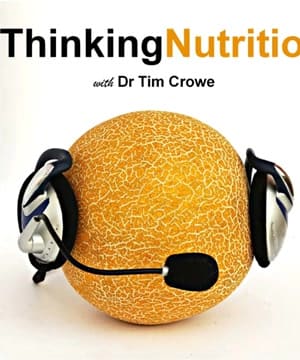DNA test for allergies
Sources:
DNA testing for allergies involves assessing genetic predispositions to allergies, but it's not typically used to directly diagnose allergies. Here's what experts have said about using DNA tests and other methods for understanding and managing allergies:
-
Integration with Allergy Panels: Ben Greenfield discusses using DNA tests alongside blood tests and allergy panels from companies like Cyrex or Zoomer. This approach helps identify food sensitivities by looking at antibody reactions to certain foods, allowing individuals to tailor diets to avoid problematic foods and enhance overall health 1.
-
Risks and Data Management: Amy Webb highlights the importance of being cautious about where your genetic data goes, especially when conducting tests in informal settings. She emphasizes the need to ask questions about data storage and handling, as people often overlook these aspects, especially during rapid or necessary testing scenarios like COVID-19 2.
-
Comprehensive Health Panels: Some health services offer add-ons to basic panels that can include allergy testing. These tests help identify specific allergens rather than sensitivities, providing more precise health insights 3.
-
Food Allergy Testing Methods: Dr. Elroy Vojdani explains traditional methods like blood panels and prick tests for testing IgE-mediated food allergies. These tests directly measure immune responses, and while they can indicate allergies, they rely on synthetic antigen versions, which may not perfectly mimic real-world allergens 4.
-
Individualized Immune Response: Cynthia Graber warns against self-diagnosing food sensitivities based solely on genetic predispositions, as avoiding certain foods might inadvertently increase sensitivity. A comprehensive allergy diagnosis typically involves skin tests, blood tests, and sometimes controlled food challenges to accurately identify allergies 5.
These insights suggest that while DNA tests can offer useful information, a comprehensive approach involving multiple forms of testing and expert consultation is necessary for accurate allergy diagnosis and management.
RELATED QUESTIONS-
How do experts view DNA allergy tests?
Sources:
Experts express varied views on DNA allergy tests, with some advocating for their use alongside other diagnostic methods for personalized insights, while others caution against over-reliance due to potential confusion from excessive information.
-
Combination with Other Tests: Ben Greenfield suggests using DNA tests in conjunction with blood and food allergy panels to customize dietary and supplement choices. This combination can help individuals avoid foods that cause antibody reactions and fill nutritional gaps, potentially reducing future medical costs 1.
-
Focus on Actionable Insights: Gary Brecka highlights the challenge of sifting through extensive genetic information, much of which may not be actionable. He emphasizes starting with basic physiological needs—such as addressing nutrient deficiencies—before getting entangled in genetic analyses that might lead to "paralysis of analysis" 2.
In summary, while DNA tests can provide valuable insights into genetic predispositions, experts recommend integrating them with other types of testing and focusing on actionable health measures to effectively manage allergies.
RELATED QUESTIONS-
Fodmap
Sources:
FODMAPs are fermentable short-chain carbohydrates found in various foods, which can cause digestive issues in some individuals. The low FODMAP diet was developed as a temporary diagnostic tool to identify food intolerances by eliminating and then gradually reintroducing these foods to ascertain individual thresholds. Here are some insights from experts:
-
Diagnostic and Temporary Use: The diet, originally developed at Monash University in Australia, involves temporarily eliminating FODMAPs to diagnose sensitivities. It is crucial not to maintain a low FODMAP diet long-term, as many of these carbohydrates are actually beneficial for the gut microbiome due to their prebiotic properties 1 2.
-
Potential for Therapeutic Benefit: Studies have shown that a low FODMAP diet can reduce symptoms in individuals with digestive disorders like irritable bowel syndrome (IBS) and inflammatory bowel disease (IBD), potentially improving quality of life and reducing inflammation 3 3.
-
Limitations and Considerations: Experts caution against the long-term use of this diet without professional guidance, as it can lead to nutritional deficiencies and harm gut microbial diversity. The diet's restrictive nature can make it unsustainable if not carefully managed 4 5.
-
Individualized Approach: It's important to tailor the approach to individual needs, as reactions to FODMAPs can vary significantly among people. Working with a nutritionist can help navigate this complex dietary regimen 6.
The low FODMAP diet serves as a valuable tool when used correctly, underlining the importance of identifying tolerable levels of these carbohydrates through systematic reintroduction.
RELATED QUESTIONS-
What other diets help with digestion?
Sources:
Several dietary approaches can aid digestion and improve gut health:
-
Diverse Diet with Fiber: Consuming a variety of vegetables, fruits, whole grains, and legumes is beneficial for gut microbiome health. Dr. Tim Gerstmar notes that increasing fiber intake enhances gut bacteria diversity, although it may require adjustments for those with digestive disturbances such as SIBO (Small Intestinal Bacterial Overgrowth) 1.
-
Fermented Foods: Incorporating fermented vegetables like sauerkraut, kimchi, and pickles can boost gut health due to their probiotics and enzymes, which improve digestion and energy levels 2.
-
Aromatic Herbs and Bitters: David Jockers suggests using herbs such as oregano, basil, and turmeric, alongside bitters like apple cider vinegar and lemon. These can stimulate digestive juices and improve digestion 3 2.
-
Mindful Eating Practices: Michelle Sands emphasizes the importance of eating in a relaxed setting, chewing food well, and having a diverse diet rich in both plant-based and animal products to promote a healthy microbiome and effective digestion 4.
-
Elemental Diet: For those struggling with solid food, an elemental diet can provide nutrients in easily absorbable forms, helping to gradually restore digestive function. This is particularly useful when transitioning back to solid foods after digestive distress 5.
These approaches can aid in optimizing digestive health when tailored to individual needs and circumstances. Always consider consulting a healthcare provider for personalized advice, especially when dealing with specific digestive issues.
RELATED QUESTIONS-
Gerd
Sources:
Managing Gastroesophageal Reflux Disease (GERD) involves understanding its root causes and finding natural, effective treatments. Here are some insights from experts:
-
Root Cause of GERD: Contrary to popular belief, GERD is often not caused by excess stomach acid but by low stomach acid production. This can stem from stress and poor eating habits, which affect the nerve tone needed for acid production. Proton pump inhibitors, commonly used for GERD, reduce acid but long-term use has significant risks 1 2.
-
Natural Interventions: David Jockers suggests using apple cider vinegar if it can be tolerated, as it helps increase stomach acidity naturally. A food elimination diet to remove potential triggers like gluten and processed foods is also recommended. Eating protein at the start of meals may improve digestion by utilizing acid production more effectively 3.
-
Understanding Silent Reflux: Symptoms can include coughing, throat pain, and difficulty swallowing, without the typical heartburn feeling. Addressing silent reflux might involve dietary changes and consulting specialists if needed 4.
-
Integrated Health Approach: Dr. Mark Burhenne notes that GERD can be linked to airway dysfunction and issues like sleep apnea. Recognizing oral signs such as lingual erosions can help in early identification and management of GERD symptoms 5.
These approaches can form part of a comprehensive strategy to manage GERD. Always consult healthcare professionals for personalized medical advice.
RELATED QUESTIONS-
How to treat GERD naturally?
Sources:
Treating GERD naturally involves lifestyle changes and choosing natural remedies that can help reduce symptoms without pharmaceutical intervention. Here are some expert-backed strategies:
-
Apple Cider Vinegar: If tolerated, apple cider vinegar can increase stomach acidity and improve digestion. It’s often recommended for its ability to help restore stomach acid levels naturally 1.
-
Dietary Adjustments:
- Elimination Diet: Remove potential trigger foods such as gluten, processed foods, sugars, and conventional dairy. Identifying and avoiding these triggers can significantly reduce reflux symptoms 1 2.
- Meal Composition: Start meals with protein-rich foods to ensure they reach the stomach first, benefiting from the most concentrated stomach acid, while eating vegetables and starches later 1.
- Avoiding Known Triggers: Reduce consumption of alcohol, coffee, spicy foods, chocolate, and fatty or fried foods, as these are known to exacerbate GERD symptoms 3.
-
Natural Supplements:
-
Lifestyle Changes:
- Meal Timing: Avoid large meals and eating shortly before bedtime to reduce nocturnal symptoms. Aim for smaller, more frequent meals throughout the day 3.
- Hydration: Drink fluids between meals instead of during them to prevent dilution of stomach acid 5.
- Probiotics and Fermented Foods: Support gut health with probiotics and fermented foods like sauerkraut and kimchi to maintain a healthy microbial balance 3.
Implementing these natural strategies can help manage GERD effectively. For best results, consult a healthcare professional, especially if symptoms persist or worsen.
RELATED QUESTIONS-







